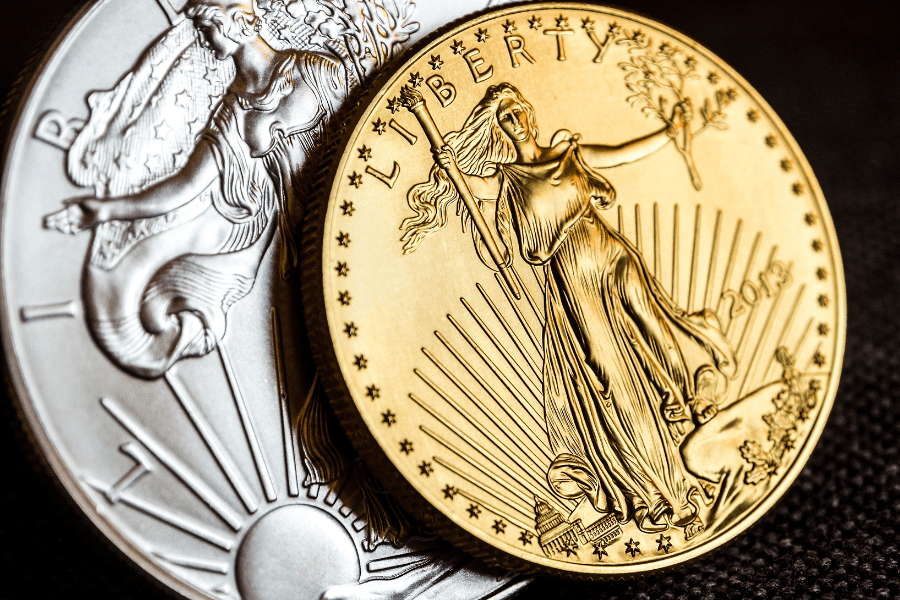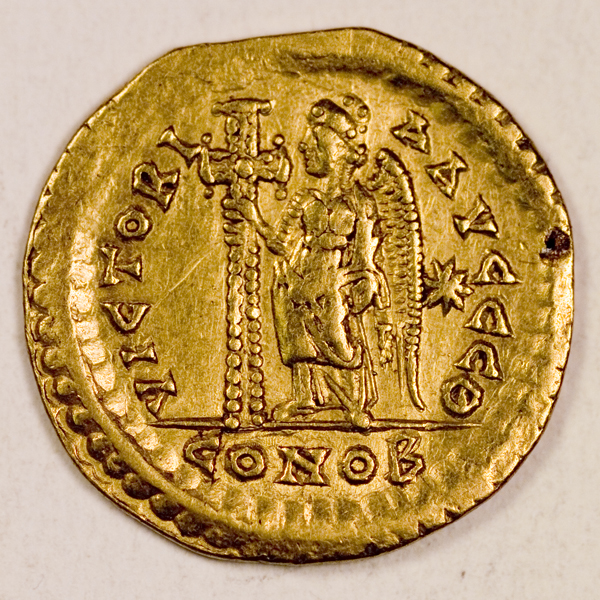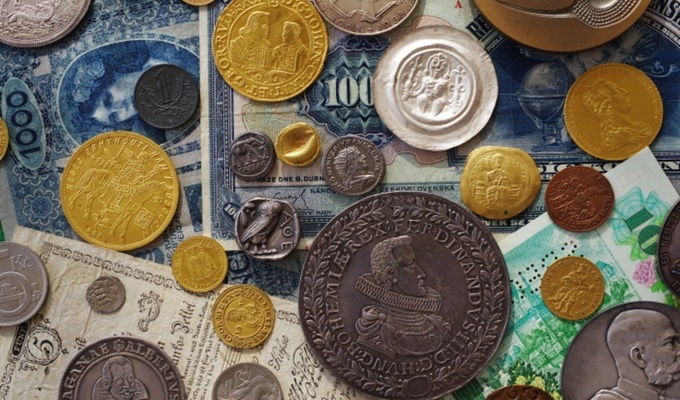Free Tips For Picking Denomination And Rupee
Free Tips For Picking Denomination And Rupee
Blog Article
How Can I Find Out More About Numismatics In Relation To Museums With An Online Database?
Here's a logical approach: Here's a systematic strategy. Database Selection: Select a library that catalogs museum collections and numismatics. Museum databases like those from the British Museum, Smithsonian Institutions or online platforms that focus on numismatic and museum collections items are all options.
Define Research Focus: Specify your research objectives. You might be interested in the collections of museums that have numismatics, coin exhibitions, scientific publications on numismatics, or cultural and historical settings for numismatic exhibits. Clarify your focus to guide your exploration.
Use keywords that relate to both the field of numismatics (numismatics) as well as museums ("numismatic collection," coin exhibitions," catalogs of museums") and include specific museum or geographic names when appropriate. Use advanced search to filter results based on dates, collections types and theme of the exhibition.
Data Collection: Get access to information on numismatic objects in museums. It includes descriptions in detail photos, illustrations, provenance as well as historic significance. Browse digital catalogs that list the coins by period and civilisation or thematic exhibits.
Study the data to get a better understanding of the collections of numismatics at museums. Study how museums curate and interpret coins in the context of larger historical and cultural narratives. Find out how museums present the numismatic materials. Focus on educational strategies, interpretive frameworks and other aspects.
Cross-Referencing - Verify what you have found by comparing your findings with other databases from museums or other scholarly sources. This will guarantee the accuracy and thoroughness of your research. It also provides a well-rounded view on the numismatics in museum contexts.
Documentation. Record your research findings by citing sources and noting the methods used. Note down details like database used, search terms and their relevance to your research questions.
Stay informed The collections of museums and displays change over time. Visit databases frequently for the latest information on the latest acquisitions.
Follow these guidelines to efficiently utilize databases for examining the field of numismatics and its relationship with museums. This method allows for a thorough study of the display and interpretation of coins, and also scholarly exploration within museum settings. This will provide insight on the past, culture and educational value. Take a look at the top rated https://zlatemince.cz/ for site advice including rare coins, banknote errors, banknote collection, circulated, legal tender, currency appraisal, coin grading, coin pressing, krona, platinum and more.
How Can I Utilize The Numismatics Database To Research Coin Dealers?
Conducting research on numismatics and dealers in coins requires databases that concentrate on numismatic trade, dealer listings, the past transactions and market trends. Here's a systematic approach to conduct this research: Database Choice: Choose databases that focus on numismatic trade and dealer listings. There are a variety of databases to pick from, including online numismatic exchanges, dealer listings offered by numismatic organizations (like the Professional Numismatists Guild), auction house databases, or historical archives containing numismatic transaction records.
Define Research Focus: Specify your research objectives. Are you looking to learn more about the background and personality of dealers in coins Are you searching for market trends in sales of numismatics, the prices of coins in time or the effect of dealers on trends in numismatic collections? Find your niche to focus your research.
Utilize keywords to locate dealers, including "numismatics market", "dealer directors" or even specific names and locations. Advanced search options allow you to search by date, type of dealer (such ancient coins modern coin, antique coins, rare coins) and the type of transaction (auctions, personal sales, auctions, etc.).
Data Collection: Get detailed details about coin dealers like company names, locations, specialties or years of operations, and the history of their business. Particulars about dealers who have contributed significantly to the numismatics, collecting or scholarly communities. Also, gather information on their participation in notable sales and auctions.
Analysis: Examine your data to discover the role that dealers in coin are in the numismatic realm. Discover how coin dealers can affect market dynamics, track trends, authenticate coins and evaluate them, and also help to disseminate numismatic information through publications and educational activities.
Cross-Reference: Ensure the accuracy of your study by cross-referencing information from various databases, directories of dealers and auction records. This ensures precision and accuracy in your research, providing insights into the many functions and contributions of coin dealers in numismatics.
Documentation: Record your findings in a systematic manner including citations to sources and a note of methodologies used. Keep track of the specifics of the databases you visited as well as the search terms that you searched with, and the way each one of them relates to your research question.
Stay updated: The numismatic market and dealer landscape are constantly changing with new auctions, dealer entry, and market trends. Stay current by monitoring updates from numismatic societies, auction houses, and marketplaces online for the most recent developments in the numismatic industry and dealer activities.
By following these steps, you will be able to allow you to effectively explore the world of numismatics in relation to coin dealers. This method allows for a thorough study of historical profiles, market influence, and scholarly contribution to the numismatic area by coin dealers. Check out the top rated from this source for coin design for more advice including banknote marketplace, obsolete currency, banknote show, authenticity, coin rarity, banknote magazine, rare banknotes, banknote value, currency, coin rarity and more.
What Can I Do To Use A Numismatics Database For Historians And Researchers To Conduct Research?
Here's a method for conducting this type of research: Database Selection: Choose databases that specialize in numismatic research, historical archives and academic journals, as well as institutions' repository sites. A systematic approach is provided to assist you in conducting this research. JSTOR, Google Scholar and the numismatic journals (such as the American Numismatic Society) are examples.
Define Research Focus: Specify your research objectives. Are you interested in understanding the historical context behind numismatic artifacts, methodologies used in numismatic studies or specific numismatic issues studied by historians, or the contributions of scholars in numismatic research? Clarify what you are seeking to limit your search.
Search Strategy: Use specific keywords such as "numismatics,""numismatic analysis,""historical coins", and include any historic periods, regions, or numismatic theme, if appropriate. Advanced search options let users to filter their search results by the date, the type of document (such dissertations, articles or conference papers) or author affiliation.
Data collection: Find details about scholarly publications research documents, research papers, and numismatics related to historical archives. Find out details such as the title of the publication, author's names, abstracts, the methods employed and the historical contexts. Find databases that allow you to access digitized research or numismatic collections.
Analysis: Analyze data to comprehend historical and numismatic researchers' methods and theories. Analyze how numismatic objects are a part of larger historical narratives as well as economic analyses, cultural studies or political histories. Examine the results and methods of different researchers working on numismatic topics.
Cross-Reference: Check the validity of your study by referencing various databases such as academic journals, scholarly publications as well as institutions' repositories. This lets you ensure the accuracy and comprehensiveness of your numismatic studies.
Documentation: Document your findings in a systematic manner, citing sources and noting the methodologies employed. Keep track of specifics such as the databases you accessed as well as the search terms you used, and how each source contributes to your research.
Stay Up-to-date: Numismatic research and scholarly research continues to develop. Monitor updates from academic publications, numismatic organizations, and institutional repositories to stay current on the most recent research findings in numismatics.
Following these steps will allow you to make use of databases for examining numismatics from the perspective of historians and researchers. This allows for a comprehensive investigation into the methods, historical interpretations, research contributions, and the historical contexts that influence the understanding of numismatic artifacts. Check out the recommended her response for coin value for more recommendations including coin errors, coin dealer, circulated, real, banknote design, treasury, coin, circulated, coin book, banknote expo and more.
What Can I Do To Research Numismatics Using A Database In Online Forums And Communities?
Here's how to conduct a research: A method that is structured is provided to guide you through this type of research. Examples include forums like CoinTalk as well as Reddit's R/Coins. There are also numismatic groups on social media platforms such as Facebook or LinkedIn.
Define Research Focus: Specify your research objectives. Are you interested in understanding current collecting trends, discussing specific coin types or historic periods, seeking guidance on authentication and grading, or connecting with experts in specific areas of Numismatics? Clarify your focus to guide your search.
Search Strategy: Use keywords relevant to the subject that you are interested in, for example "numismatic forum,"" "coin collecting community,"" "online discussion forums on numismatics," and other keywords that relate to specific topics, (ancient coins or modern coins) or keywords that are related to the topic of your study. Use search functions within each platform to locate relevant discussions.
Data Collection: Access information from threads, discussions, and other posts on the internet forums and communities. Find out more about collecting strategies and coins, market trends, and personal experiences with numismatic discoveries. Additionally, you can discuss various aspects of culture or history associated with coinage.
Analysis: Analyze information to gain a greater understanding of opinions, experiences, and expertise that are shared by people who belong to online numismatic clubs. Assess the reliability of information by considering the knowledge of the contributors, the consensus between members on particular topics, and the quality of the discussions.
Cross-Referencing Verify your findings through cross-referencing across forums and communities. Compare insights on different platforms in order to gain a wider perspective of collecting trends and market data.
Documentation: Document all your observations, including specific threads or discussions. If necessary you want to cite contributors. Keep track of the main insights shared as well as trends and views in online forums.
Stay engaged: Participate actively in discussions or ask questions, and then add to it in order to gain new perspectives and build connections within the numismatics community. Keep up-to-date with the latest threads, responses, and announcements to stay on top of current discussions and trends.
Follow these steps to effectively make use of forums and online communities to conduct the study of numismatics. This technique allows you to access an array of information and experience from a variety of group collectors and experts. They will provide you with invaluable insights and perspective on various aspects regarding coin collecting and identification. Take a look at the top rated currency forum examples for site info including coin display, design, copyright detection, coin identification, half-dollar, banknote catalog, rare banknotes, currency collecting, authenticity, uncirculated and more.
What Can I Do With A Numismatics Database To Search For Technology Providers With Regard To Numismatics?
This type of research requires databases that are focused on authentication, digital imaging, and cataloging technology. This is a structured way to conduct this research. Database Selection: Select databases that specialize in technologies that are relevant to numismatics. It is possible to use reports from industry as well as websites of companies in the field of technology, numismatic forums and publications of the numismatic society focused on the latest technological advancements.
Define Research Focus: Specify your research objectives. Are you interested in learning about new developments in technology advancements, coin imaging, (like the X-ray fluorescence or spectroscopy) catalogs of digital information for collecting numismatics, or technological solutions that detect counterfeits? Clarify your focus to guide your research.
Search Strategy: If appropriate Use keywords like "numismatic technology supplier", "coin imaging system" or "authentication devices for coins" and include specific companies or technologies (such digital imaging firms as well as manufacturers of authentication devices). Utilize advanced search options to sort results according to dates, types of technology, and industry sectors.
Data Collection: Find data on technological advancements and advances in numismatics. Find details on the company's profile and descriptions of products. Also, collect case studies about technology implementations.
Analyze the data to determine the how technology works and the impact it has on that is offered by various companies. Evaluation: Examine the technology to find out how they improve authenticity, enhance cataloging, aid in numismatics and overcome challenges like detection of fakes in the field of numismatics.
Cross-Referencing - Verify your findings by using data from different databases, corporate websites as well as industry reports and numismatic magazines. This guarantees that you are doing your research. Additionally, you will gain insights into a variety of technology solutions for numismatic collectors.
Documentation. Document your research findings, including the sources you consulted and identifying any methods employed. Keep track of the details such as databases you have accessed as well as your search terms and their connection to your research questions.
Stay up-to-date: Numismatic technologies are constantly evolving with advances in the field of digital cataloging, authentication, and imaging. For the latest numismatic technologies, keep up with updates from reports on industry, technology providers and numismatic journals.
Following these steps will allow you to effectively use databases in order to explore the numismatics industry and the technology providers. This method permits a comprehensive examination of the technological innovations that influence authentication, cataloging and research capabilities of the numismatic community as well as providing insight into how technology impacts the practices of numismatics. Have a look at the best currency catalog info for website examples including banknote production, mint condition, banknote production, banknote auction, currency collecting, coin society, lira, banknote dealer, currency grading, coin release and more.